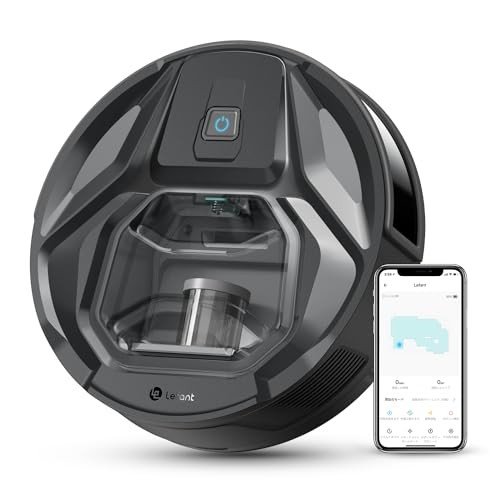From Around The Web Here Are 20 Amazing Infographics About Robot Vacuum Cleaner
The Rise of Robot Vacuum Cleaners: A Comprehensive Guide
In the last few years, robotic technology has actually penetrated numerous aspects of life, significantly changing how tasks are achieved. One of the most innovative developments in this location is the development of robot vacuum cleaners. These devices have actually moved from a luxury product to an important household tool, providing benefit and efficiency to millions of users around the globe. This post will explore the mechanics, benefits, limitations, and popular models of robot vacuum cleaners, along with address some regularly asked questions.
What is a Robot Vacuum Cleaner?
A robot vacuum is an autonomous gadget designed to tidy floorings without human intervention. Geared up with sensors, brushes, and vacuum innovation, these small machines can browse a home, effectively getting dirt, dust, and debris. mop robot vacuum come with numerous functions, consisting of Wi-Fi capability, smart device applications, and home mapping innovation, which enable users to keep an eye on cleaning progress remotely.
How Robot Vacuum Cleaners Operate
Robot vacuums utilize a number of innovations to guarantee effective cleaning. Below are the primary components that contribute to their performance:
Navigation Sensors: Most robot vacuums come with numerous sensors (infrared, ultrasonic, etc) that help detect obstacles, stairs, and walls, allowing the gadget to browse a room efficiently.
Suction Mechanism: The vacuum utilizes a suction system to collect dirt and dust from surfaces. Numerous designs utilize innovative cyclonic technology to enhance suction power.
Cleaning Brushes: Different types of brushes (side brushes, rolling brushes) help in loosening dirt and assisting particles into the vacuum's suction area.
Battery System: Operating on rechargeable batteries, robot vacuums can clean autonomously for a fixed period before returning to their docking station to charge.
Smart Features: Many designs are equipped with Wi-Fi connection, allowing users to manage cleaning schedules, suction power, and zoning via smartphone apps. Some even support voice control through wise home devices like Amazon Alexa and Google Assistant.
Advantages of Robot Vacuum Cleaners
The integration of robot vacuum cleaners into everyday cleaning tasks uses several substantial benefits:
Time-Saving: They perform cleaning autonomously, enabling users to focus on other essential activities.
Constant Cleaning: Robot vacuums can clean up on a regular schedule, making sure that dirt and dust do not accumulate.
Convenience: Most designs can be run while users are out of your home, and even from remote areas through smart device apps.
Area Efficient: With their compact style, they can access areas that conventional vacuums can not, such as under furnishings and in tight areas.
Smart Technology: The added features, such as mapping and scheduling, supply users with enhanced control over their cleaning regimens.
Limitations of Robot Vacuum Cleaners
Despite their various advantages, robot vacuums do feature some limitations:
Initial Cost: High-quality robot vacuums can be more expensive than traditional vacuums, which might prevent some consumers.
Handbook Assistance Needed: Robot vacuums might struggle with large debris or thick carpets, needing periodic manual vacuuming.
Battery Life: Depending on the model and the size of the home, the battery life might limit how much location can be cleaned up in one session.
Maintenance: Regular upkeep, such as emptying the dustbin and cleaning brushes, is important to keep the vacuum operating effectively.
Popular Robot Vacuum Models
Here's a table comparing a few of the premier robot vacuum cleaners on the marketplace:
Model
Suction Power
Battery Life
Smart Features
Cost Range
iRobot Roomba 980
High
As much as 120 min
Wi-Fi, App Control, Alexa
₤ 600 – ₤ 800
Roborock S7
Very High
As much as 180 minutes
Mapping, Virtual Barriers, App
₤ 400 – ₤ 600
Ecovacs Deebot OZMO T8
High
Approximately 240 minutes
AI Smart Navigation, App Control
₤ 600 – ₤ 700
Neato Botvac D7
High
Approximately 120 min
Mapping, Zone Cleaning
₤ 600 – ₤ 700
Shark IQ Robot
Moderate
Approximately 90 min
Self-Cleaning, App Control
₤ 400 – ₤ 500
FAQs About Robot Vacuum Cleaners
Q1: Can robot vacuum replace traditional vacuums?
While robot vacuums can substantially minimize the requirement for conventional vacuuming, they are best utilized as a complementary tool rather of a total replacement. For deep cleaning or bigger particles, traditional designs may still be necessary.
Q2: Are robot vacuums reliable on all kinds of flooring?
The majority of robot vacuums perform well on tough surfaces like tile and wood, in addition to low-pile carpets. Nevertheless, users with high-pile carpets might find minimal effectiveness and should think about specific models developed for those surface areas.
Q3: How do robot vacuums manage pet hair?
Many designs are specifically created with effective suction and rubber brushes that successfully gather pet hair from carpets and furnishings. It's advisable to check evaluations focusing on family pet owners' experiences for better insights.
Q4: Do robot vacuums require much maintenance?
Robot vacuums do require some upkeep. Users need to frequently empty the dustbin, clean the brushes and sensors, and check for any obstructions to keep optimal performance.
Robot vacuum have actually altered the cleaning landscape, providing users time-saving, effective, and hassle-free services to floor upkeep. While they might not completely replace standard vacuums, their combination into households symbolizes an advance in how we approach home cleanliness. As innovation constantly develops, we can expect even more developments in this area— making robot vacuums an ever-relevant home tool.
